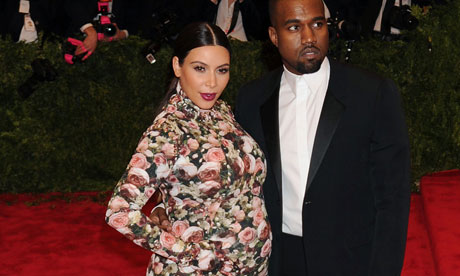
We are all guilty of harbouring certain fascinations with celebrities. I don't care how many times you might loudly sigh as your friends discuss Kelly Brook's most recent holiday snaps, you'd be hard-pushed to find anyone who wasn't interested in the life of at least one specific someone, be it a particularly dislikable politician or a favourite artist.
For me, it's always been Britney, and it's always been more than her music. I think we're interested in the private lives of people we don't know partly because we're taught to contextualise things as best we can from an early age. It's just one of those things that's drummed into your head on repeat in history class, and English. So why wouldn't we attempt to contextualise celebrities, too? We've been doing it to authors in the name of academia for hundreds of years, so the leap from Virginia Woolf to Britney Spears really isn't so far. If you put it in context, of course.
But of course there are varying degrees in our interest in the private lives of public people. While a kid who wants to know what Britney Spears's tour bus bunk looks like is one thing, the appetite for constant inane celebrity news has exploded online. And it's not only Perez Hilton. The British tabloids rather enjoy stoking the fires of obsession, too. It sells, because apparently we want to buy it. Celebrity has developed from the public peeking into the tiny pockets of almost unfathomable glamour in the 1950s, to a nationwide hunger for constant content. Even if that content is literally just a trip to the hairdressers.
According to anthropologist Jamie Tehrani, in some research he released last week, there are elements of celebrity obsession which are integral to our social behavioural patterns. We are and always have been, according to Tehrani, a bunch of voyeurs. Rather than learn a lesson ourselves, we pick up on social habits and survival instincts from the dominant leaders of a group. Our current interest in celebrities is simply a transferral of admiration from the community role model of time past to somebody with superior skills – at football for example.
Unfortunately this theory proves a bit problematic, largely because during the transferral of that admiration, we seem to have misplaced one important element: the superior skills. If Tehrani thinks it's a recognition of something admirable which provokes us to pore over pictures of actresses trying to put food in their mouth daintily while a grown man crouching by some shrubbery takes hundreds of photographs, I'm inclined to disagree.
Clearly role models matter, but the celebrities we're choosing to fixate upon are certainly not that, and if they dare claim to be, they're quickly taken down a notch. Consider actress Amanda Bynes, who fell almost completely under the radar until her mental health came into question, after which she became a car-crash superstar almost overnight. The talent which had propelled her into the public eye was years behind her and hardly relevant to the media frenzy over her erratic behaviour of the last few months.
Clearly I'm no anthropologist, and I certainly wouldn't want to argue that Tehrani is wrong, but I think there's another element to our celebrity obsession that lies a little closer to home than the influential members of communities past. A lot closer, because as much as I'd like to believe we've all subconsciously clocked really admirable and superior skills in the endless American reality stars, mediocre singers and call centre employees (how did that show get commissioned, BBC? It's the most boring thing I've ever seen), I can't quite believe it.
Actually I think we're just watching ourselves reflected in their faces. We see ourselves in the people being made over by record labels, in the people sobbing over the wrong kind of crisps in Big Brother, or just people who are incredibly, incredibly bored.
It's a strange kind of ego voyeurism, which has nothing to do with identifying talent, and everything to do with feeling comforted by the nuances of human nature. Sure, maybe we really do love to hate people, and the way the British media revels in distress is sickening. But perhaps we want to read all the scandals and exposes because in some way, it feels like it's happening to us, and that can help us to understand it.
While it certainly doesn't help us to unpick the endless objectification of women in the media, or the strange fascination people have with murderers, perhaps it can help to explain why we're so keen to know what Kim Kardashian wears to bed.
Magic moments
Last week Channing Tatum announced the possible appearance of Magic Mike II.
Its predecessor, if you missed it, is a sort of 8 Mile meets the OC channel movie about male strippers, and quite possibly my favourite film of all time.
Not only am I incredibly excited because it signals the return of Channing Tatum writhing around in a tracksuit (he's a really good dancer, honest) but also because it confirms the ever-debated existence of the female libido.
Yes, you might think that debate ended in the 60s, but you'd be amazed how many people walked out of Magic Mike assuming it was purely homo-erotic.
Excuse me, there may not be a line of Stringfellows for women, but that doesn't mean we don't enjoy a bit of male grinding once in a while.

